The Rise of Leftist Totalitarianism, not Trump, Should Be the Focus of the Church and the Nation
One of the chief merits of Megan Basham’s NYT-bestselling book is its power to show us that the threat of totalitarianism is real. By exposing the influence of dark money funneled into Christian institutions by Leftist actors, Shepherds For Sale illuminates the ongoing Gramscian march through America’s institutions.
Other examples abound. Xi Van Fleet, a Chinese-American mother who survived Mao’s Cultural Revolution, sounded the alarm about this growing threat before a school board in Virginia in 2021. In his bestselling book Live Not By Lies, Rod Dreher reiterates the warning Soviet gulag survivor Alexander Solzhenitsyn delivered to America in his famous commencement address to Harvard’s class of ‘78. Victor Davis Hanson tirelessly highlights the parallels between developments in America with the Jacobin revolt, Mao’s cultural revolution, and Marxist regimes around the globe.
Communist survivors, almost by definition, are better able to recognize today’s speech codes, cancel culture, DEI regimes, corrupt intelligence agencies, co-opted media, draconian Covid-mandates, bullying of social media corporations, and lawfare as the unmistakable marks of a totalitarian revolution. However, any astute and honest observer of American politics should be able to spot these communist control methods being increasingly and openly embraced by the Left right now.
The Democrat Party isn’t shy about it. During this election cycle, they announced their desire to take additional steps necessary to consolidate one party, totalitarian control by the state. They want to end the filibuster and the electoral college, make D.C. and Puerto Rico states, and either pack or implement term limits for the Supreme Court, or both. If they can do that, it’s game over.
The evangelical elite’s failure to recognize the totalitarian revolution underway in America accounts best for the criticism of Shepherds For Sale from the Left—and leaves others handwringing over relatively minor issues involving intra-Christian relations. A line or two from Bethel McGrew’s review of Basham’s book at First Things offers a window into this problem:
“[Basham] praises Christians who sought to wield the power of their vote ‘for the right reasons,’ and yet those Christians have in turn been overpowered as Trump rewrites the Republican platform by fiat. Roe was defeated, yes, but at what cost? Voters who chose Trump may have nothing to apologize for, but neither do voters who abstained.”
How does it follow that Basham’s praise of conservatives who vote “for the right reasons” merits McGrew’s “and yet” regarding Trump and the GOP platform on pro-life issues? Well, it doesn’t. Past swings and misses by morally motivated Christian voters who “sought to wield power” do not commend the abandonment of “swinging” but additional swing practice in preparation for the next trip to the plate.
McGrew’s non sequitur unwarrantedly shifts focus away from the specter of Gramscian dark money to the therapeutic age penchant for the catastrophizing of hurt feelings—“[v]oters who chose Trump may have nothing to apologize for, but neither do voters who abstained.” Why would McGrew juxtapose commendation of Basham for exposure of dark money with a plea to keep stay-at-home voters in a safe space shielded from demands for apologies?
The stay-at-home voter defense exhibits a mild strain of Trump Derangement Syndrome combined with a seemingly unlimited tolerance for false moral equivalence. Behind such therapeutic preoccupation lies longstanding evangelical wariness for pressing one’s political proclivities upon others combined with still-visceral recoil from the Orange Man by some voters.
Perhaps no one distilled the ethical essence of this condition so pithily as did the late “superstar” NYC pastor Timothy Keller, who said: “Christians cannot say to other Christians ‘no Christian can vote for…’ or ‘every Christian must vote for…’.” But, just as the right of privacy Justice Harry Blackmon asserted in 1973 that made Roe the law of the land cannot be found in the Constitution, one searches the Holy Scriptures in vain for the right not to be told how to vote.
Keller’s stricture landed more plausibly when Americans inhabited a nation whose voting-eligible citizens of both major political parties were bonded by an impressive moral consensus—a largely Christian consensus of the sort Tom Holland continues to uncover. That consensus once lent credence to the contention that what divides the Republican and Democrat parties lies not so much in their goals nor in their vision for America’s future but rather in how best to get there.
No one believes this now. Keller needed the continuance of a “neutral world” to defend his admonition’s moral rectitude. For pastors and other Christian leaders to beg off prophetic and pastoral responsibility where voting is concerned in 2024 invites calamitous results for an entire nation that far exceed the significance of any one or two or more moral concerns, including for the poor, the unborn, the immigrant, the same-sex attracted, the environment or whatever.
The Keller movement, embraced by the most prominent evangelical denominations and publishing houses, branded itself as “non-partisan.” It created the category “gospel issues” to sanitize and smuggle in blue-community-pleasing takes on an array of Democrat-approved hot-button issues in their messaging. Thus, critical race theory, care for the immigrant, DEI, masking, taking the shot, and creation care won “gospel issue” status meant to shield them from the charge of partisan bias. Even Sam Allberry’s call for churches to provide safe places for same-sex-attracted persons to tell their stories became a “gospel issue.”
But do the dangers of the totalitarian threat not merit the “gospel issue” label that same-sex storytellers won? If not, why not? If it does (and an estimated death toll of approximately 100 million lives lost to totalitarian regimes in the 20th Century strongly suggests that it does), don’t pastoral directives to Christians about which party and what person to vote for and not vote for become morally imperative? Pastors cannot shirk this duty.
Through her online presence and her book Mao’s America: A Survivor’s Warning, Xi Van Fleet has leveraged what might have been fleeting Virginia school board fame into a one-woman campaign against the Democrat Party. Seeing before her too much of what she witnessed under Mao, Van Fleet sounds the warning that Shepherds For Sale supplements. As Christians prepare to vote in the upcoming election, I highly recommend they take some time and familiarize themselves with her warnings against how totalitarianism took over China.
In one account, Van Fleet recalls with horror how her own beloved parents aided and abetted Mao’s machinations and rise to power.
How? Blind to the societal horrors they were facilitating—they voted for it.
Will American Christians make the same mistake? If they do, the blame rests on the pulpits of pastors who would not dare to offend the Left by telling the truth about the threat of totalitarianism and rousing the sleepy evangelicals in our country to wield their political power rightly to defend our freedoms.
But if they continue to follow in Keller’s footsteps, they may soon find themselves on the front steps of their churches as they watch the government lock the doors and throw away the key.
When that moment arrives, they cannot say, “We didn’t know this was coming,” but only, “We were warned, but we didn’t listen.”
Or worse: “We voted for this.”
-

Dr. DeVine teaches historical theology in the Beeson Divinity School at Samford University in Birmingham, Alabama. He is the author of multiple books and has written extensively for theological journals. Mark also writes on the intersection of faith, work, culture, and politics for national online magazines and has served as pastor for churches in Indiana, South Carolina, Kentucky, Missouri, and Alabama. The views expressed in this article are Dr. DeVine's personal opinions.

